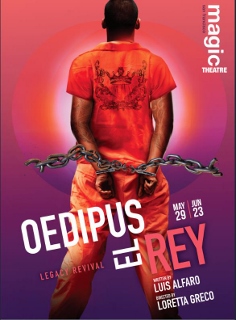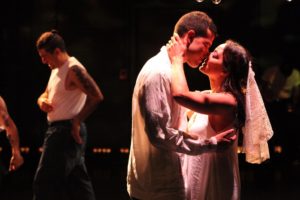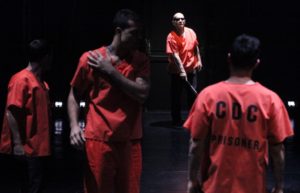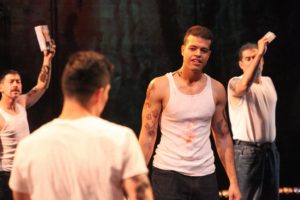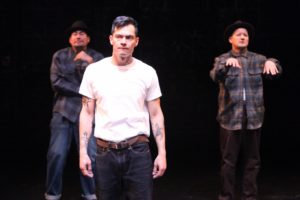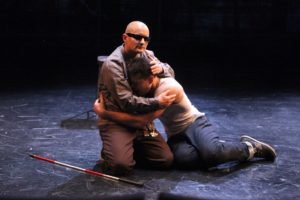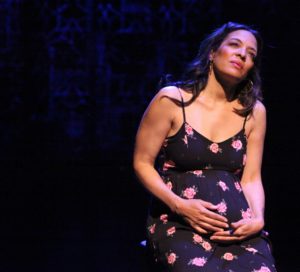GREEK TRAGEDY IN THE ’˜HOOD
Having read Luis Alfaro’s Oedipus El Rey, one can see that is a true original, that it possesses power, anger, frustration, political and social outrage, that Alfaro’s heart bleeds with compassion for his characters, that his writing is rich and often dazzling in its use of language and in its obsessive desire to wed the classic myth of Oedipus with the contemporary reality of the Chicano experience. It is not however what I saw on the stage of the Magic Theatre in Loretta Greco’s bare-bones production.
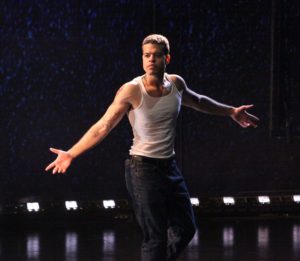 Some of the problems are inherent in the play itself. While there is musicality in the incantatory rhythms of the Greek chorus of men in prison, it is also true that the first section of the play is crude exposition and the effort to join street talk with poeticizing often comes across as a wee bit pretentious. The play doesn’t really start until Oedipus enters.
Some of the problems are inherent in the play itself. While there is musicality in the incantatory rhythms of the Greek chorus of men in prison, it is also true that the first section of the play is crude exposition and the effort to join street talk with poeticizing often comes across as a wee bit pretentious. The play doesn’t really start until Oedipus enters.
And it doesn’t really cope with the challenges of Sophocles’ great play which is its source until the play is almost over. The Oedipus myth is, of course, one of the standard inspirations for so much modern theater, most of which don’t even cite the classic play but rely instead on some psychological attitudes which have become somewhat outmoded and fortunately outdated.
So the refreshing part of Alfaro’s work is that it looks at the myth more from a sociological point of view than from a psychological one. The violence in this version is more indicative of the violence in our society and perhaps specifically the violence on the streets of South Central Los Angeles and wherever poverty is a scourge. There is strong stuff at the heart of Alfaro’s vision.
But Greco seems to be counting on the language alone to keep the drama afloat. And so incantation takes the place of real people talking to each other. Most of her actors are content to play attitudes rather than characters. After a while, an intense monotone replaces dramatic passion. There is a moment when members of the audience come on stage to join in a dance. I do not know where that moment comes from or where it means to go, but it is at least a jolt of joy in the midst of oppressive despair.
Esteban Carmona seems a little soft as Oedipus and Lorraine Velez is far too young to be totally believable as his mother Jocasta but, together, they bring a warm sensuality to their relationship, which provides the production with something palpably human. And Amando Rodriguez brings a sharp edge to the role of Creon when he is interacting with Carmona and Velez.
Alfaro describes the empty stage as giving the impression of being “hollow and hallowed,” which is a bravely poetic notion, but you can’t just suggest that sort of thing without reaching for it. I certainly didn’t see it or feel it. There are some visual projections, courtesy of the gifted Hana Kim, which, from a seat on the side, could barely be seen. The little I could see was neither dreamlike, which would have helped, nor filled with images of South Central L.A. — which Alfaro describes in such vivid detail — which would have helped even more.
The problem is that Ms. Greco depends on the words without giving them the theatrical urgency which would make the events of the play more real and more immediate. The fact that the play is revered and has been rewarded with many prizes and critical affection makes this a minority report. But the play I read is not the play I saw. And I’m not convinced that the play is, despite its invigorating passion, without serious flaws.
photos by Jennifer Reiley
Oedipus el Rey
Magic Theatre
Fort Mason Center for Arts & Culture
2 Marina Blvd., Building D, 3rd Floor
Tues at 7; Wed-Sat at 8; Sun at 2:30
ends on June 23, 2019
for tickets, call 415.441.8822 or visit Magic Theatre
